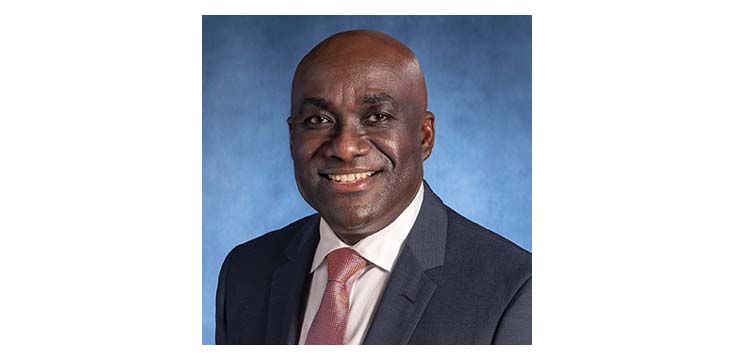INTERVIEW: “Men and women equally responsible for family planning”
The Challenge Initiative (TCI) is a reproductive health programme, funded by the Bill & Melinda Gates’ Institute of Population and Reproductive Health,aimed at improving the reproductive health of the poor across urban areas in Nigeria, India, Senegal and Kenya. Kojo Lokko, the deputy director of TCI spoke to African Newspage during his recent working visit to Kano, Nigeria.

What is the aim of your visit to Nigeria?
I am in Nigeria this week to understudy the work that The Challenge Initiative (TCI) is doing in Kano state. The Challenge Initiative (TCI) was introduced in Kano, Nigeria, about a year ago and there has been a lot of progress. So, my coming here is to review the achievements we have made so far and see what is responsible for the successes and the challenges being faced.
Also, I am here to meet with the officials of the state to understand their relationship with TCI and to get their views on how the program is progressing. So, I am here virtually on a courtesy call on the state government, the ministry of health and will also go to the field to see how the programme is progressing since we started implementation.
How impressed are you with the progress achieved by the programme so far?
The Challenge Initiative is designed such that we do not impose ourselves on states; basically, we introduce it to several states and the leadership of the states came forth to say: “We want to be a part of TCI.” We were happy when the Kano state government came forth to say they wanted to have TCI here. That step is a demonstration of commitment – political commitment and leadership.
So when I came I met with the Kano state commissioner of health to hear his impressions about what TCI was doing. He strongly supports the initiative and he actually made reference to comments made by His Excellency, the Governor of Kano State – in terms of his support for family planning and childbirth spacing programmes in the state.
I think for us that are pushing the idea of family planning, this is a major success story – that we enjoy the support of political and community leadership, particularly the Kano State Ministry of Health. During my field visits, I had the opportunity to visit two facilities where the concept of 72-Hour Makeover Clinic was implemented i.e Murtala Muhammed Specialist Hospital as well as the Gwagwarwa Primary Healthcare Centre.
They now all understand family planning, what we achieved under the 72-Hour Makeover Clinic system, is change people’s mindset and orientation about family planning. I have been to these two clinics and it was very impressive seeing the change; they showed me pictures of what it looks like on Thursdays and Sundays.
What are the major challenges have you witnessed so far?
The challenge we are now facing is that the number of people accessing family planning have increased. So, due to the rising demands for our services we are preparing the facilities to be able to receive and cater for the big numbers that are coming to access the services through the concept of 72-Hour Makeover Clinic. If quality service is available and is being accessed by the clients, they would go back to their communities to express their happiness about it and advice their fellow community members to also come for it.
What major successes have you witnessed here in Kano?
In the past one year, The Challenge Initiative (TCI) in Kano is already recording some results, but I won’t attribute all that to TCI because other development partners are also working with us. In terms of supporting the ministry of health in the area of childbirth spacing there has been an increase in Modern Contraceptive Prevalence Rate (MCPR) from negative 1 to 6 percent. So there has been a 7 per cent increase in MCPR which is very positive for Kano.
However, I want to believe that it is just a tip of the iceberg; I want to say that in about a year we are going to see the doubling of this number. But we have to work hard to keep the demand; we must ensure that the services are there.
What is your message to the people of Kano on Childbirth Spacing (CBS)?
Childbirth spacing helps the family and community at large. There is no country that has advanced economically and socially without adopting childbirth spacing and family planning. We have to look at our fertility choices if we are to prosper as a state; we have to practice childbirth spacing so that our children can become healthier and get quality education.
It’s about quality and not quantity, fertility is a blessing from God – therefore it is important we manage it, else it could become a curse.
I also have a message for the men; we have for a long time made it look like family planning is the problem of the women alone. It is a joint affair and the men are equally responsible for it. So, let us support our women to have access to family planning and childbirth spacing methods.









